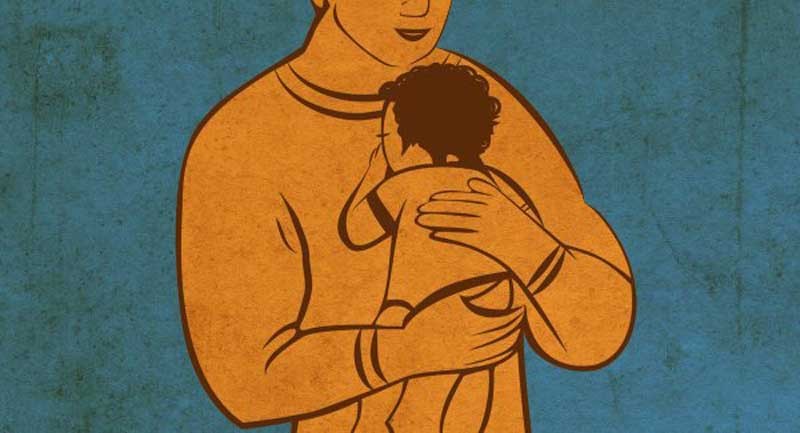
If one government department has decided to incorporate the practice of ten-day paternity leave, it is a step in the right direction, and must be followed through

If something is too good to be true, it probably is. But the second part is mostly in hindsight which of course is 20/20. And hence, it was with a sense of joy and part disbelief that I heard the news that the federal government had approved a 10-day paternity leave for its male employees. Could it be that finally, we, as a society, were accepting that fathers too had a role to play in looking after their newborns?
Evidently, no.
Quickly enough, along came the clarification, and the ‘what we really meant’. According to the Human Rights Minister Shireen Mazari, the 10-day leave only applied to employees of the National Commission on Status of Women. However, she was quick to add that work was underway "on how to expand this across the board".
In government-speak, that means nothing.
To be fair, it’s still a monumental step. After all, in our conservo-Islamic society, there are clear-cut roles for the husband and wife. The former toils in the field and the latter over the stove. As the societal and economic class changes, the details change as well, but the faultlines remain the same, the man outside, and the woman inside.
It’s no wonder that all children are mostly amma’s. Abba jee is never around, and even if he is, it’s usually ‘his’ time, after a whole day in the big mean world.
And so it goes, and goes and goes. Till one day, both father and child realise that they have absolutely zero connection. They can’t talk. Can’t hang out. The child has lost what could have been a most wonderful friendship, and the father, well, he’s lost everything, hasn’t he?
But the times are changing. Rampant inflation and costs of living have made it near impossible to sustain any respectable standard of living with one income. And while the number of women in the workforce still remains terribly low, it is increasing. So when the father and mother both are at work, what happens to the child? While the lucky ones are able to hand over their children to their grandparents or others in the family, many have to check into daycares. Others have no such option either, and either must take the child along to work which hinders their concentration, or are forced to quit working altogether.
Some would argue that it’s just 10 days. Neither here nor there, to be honest. But it sets a pattern. A precedent if you will. Let’s say a father takes 10 days off immediately after the birth of his child. What he does with those 10 days is the real tell. Will he allow his wife some breathing space and take on some of her responsibilities, or will he lay in bed the whole day flipping through TV channels and texting on his phone? There is no way to know.
"New mothers need a switch off period," a young mother tells me. "After the nine month ordeal, they need a break to get their body and mind back in some form of working order -- and it’s not like they will be completely hands off during those 10 days, but still, any space would be welcome."
A father I spoke to told me that he would be clueless about how to help. My retort was that I wasn’t aware that the mother had a manual at her side. And then came the weakest argument, "mothers are genetically programmed to care well for the child". To my mind, there is only one thing which a mother has monopoly over, and that is nursing. The rest, it seems, is on a learn-as-you-go formula. And let’s assume that the man really is clueless about what to do with the baby, surely he can do wonders in helping his wife emotionally. But that goes against the grain of what being a man in Pakistan means. This is what has to change, 10 days paternity leave or not.
One would think that paternity leave would be a near universally accepted practice. But unfortunately, it’s not. The United States, China and India are among the 92 countries where there is no national policy that allow dads to take paid time off work to care for their newborns. On the flip side, countries like South Korea and Japan lead the pack when it comes to paternity leaves, with one whole year of paid leave available for fathers. The fact that this leave is rarely taken is another matter altogether, and has mostly to do with job security and insane competition.
And so, if one government department has decided to incorporate the practice of paternity leave, it is a step in the right direction, and must be followed through. However, an equally important step would be to somehow sensitise men about how they have an important role to play after the birth of a child -- it’s not enough to say that the man works in the field or the office the whole day -- that’s 8 to 10 hours, with Sundays off. A new mother? 24/7.